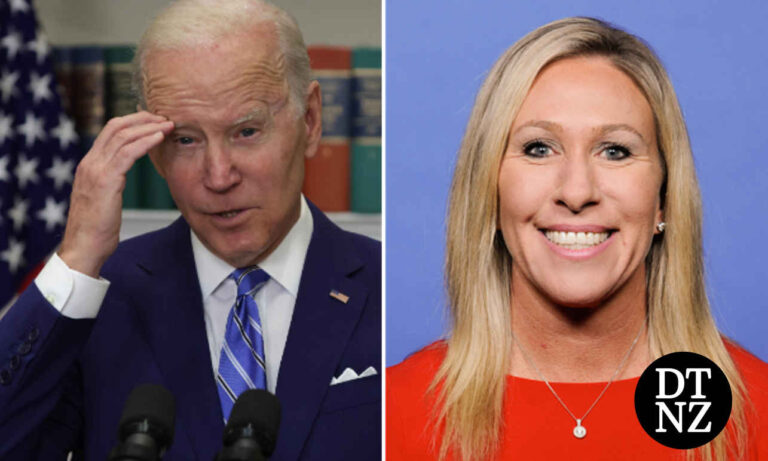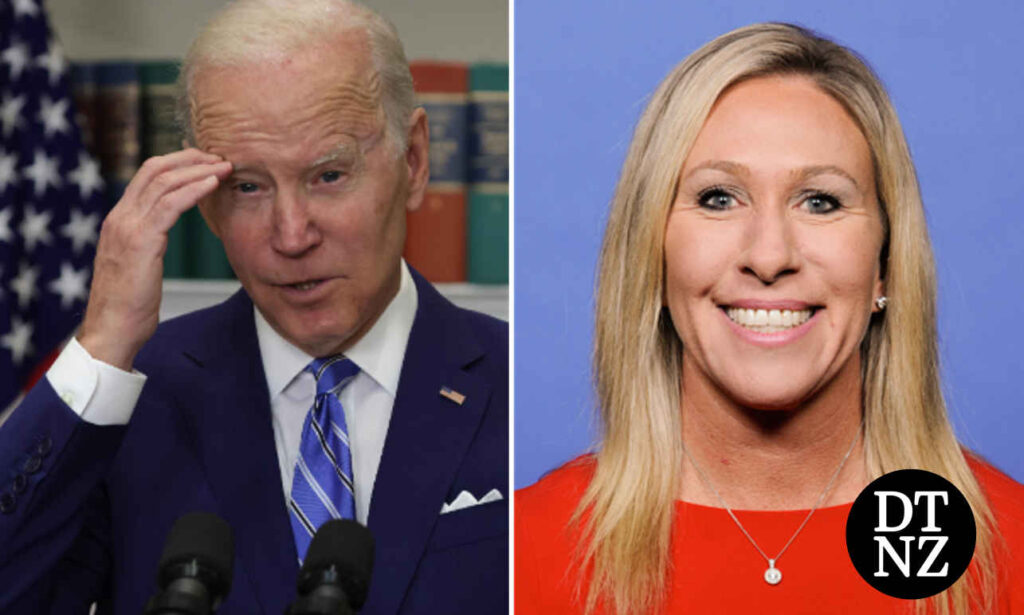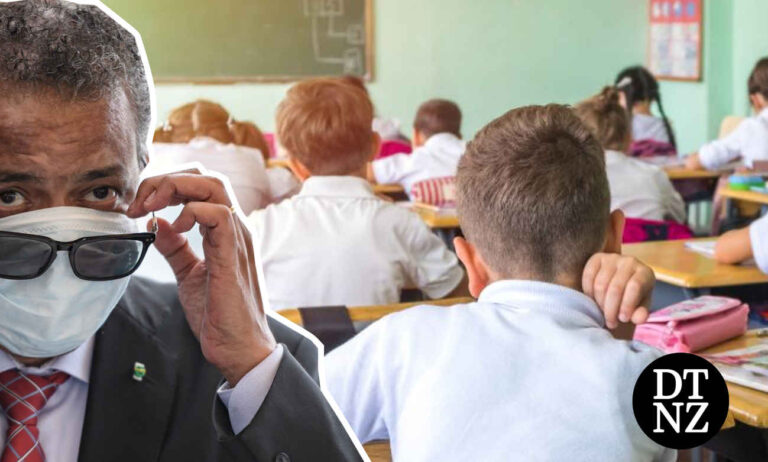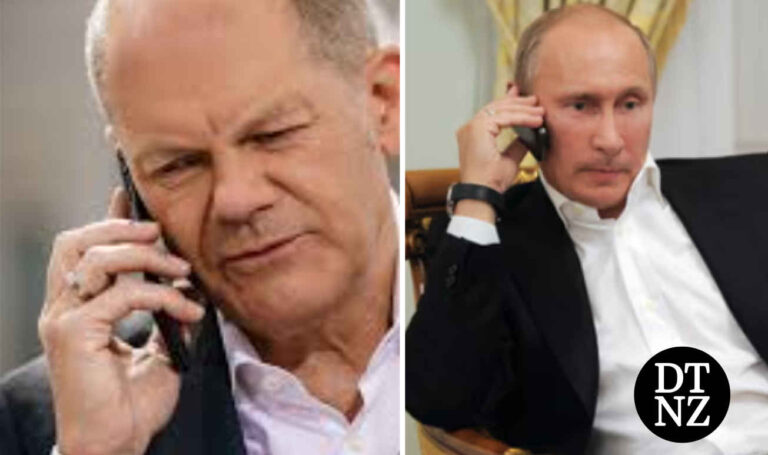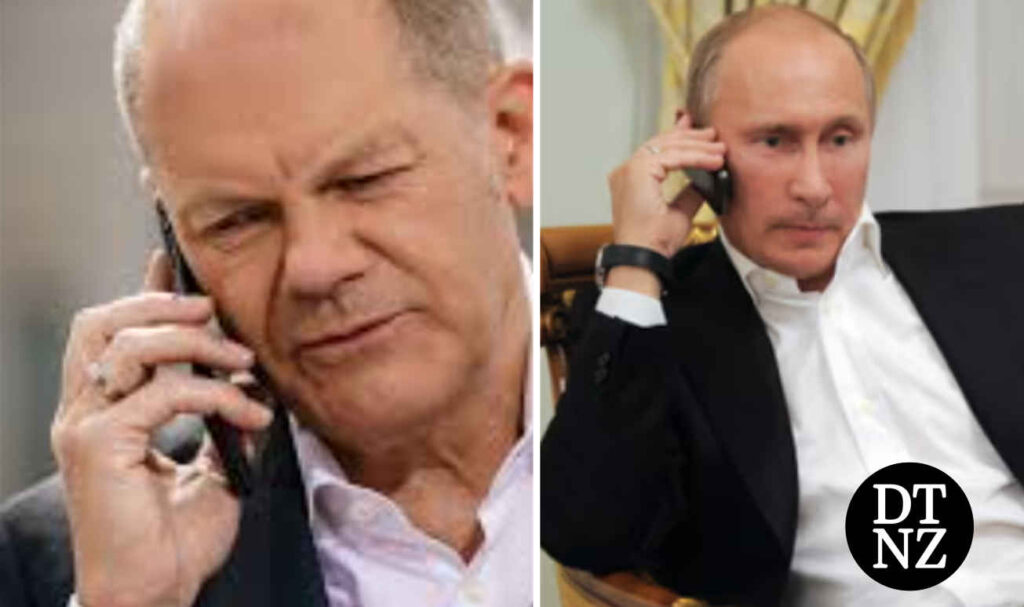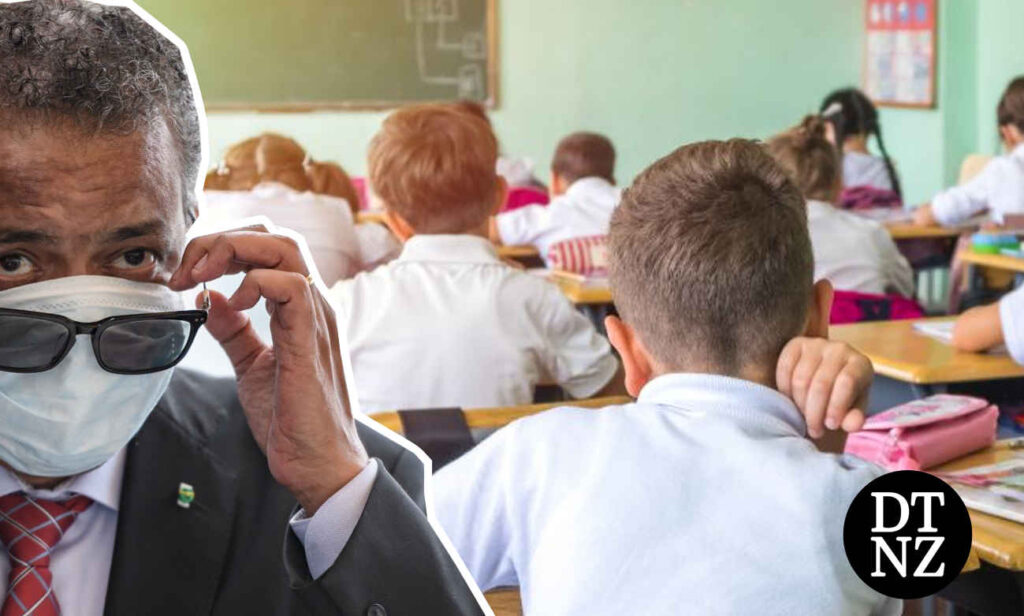
Herein I explore the extent of the WHO’s intrusion into the sphere of education which it appears to be using as a strategy for the delivery of its child sex agenda.
The process to legislate the amended form of Relationship and Sexuality Education (RSE) into the school curriculum has seen the diversion of much-needed administrative and teaching time and resources away from education fundamentals such as reading and numeracy, the standards of both of which have fallen alarmingly. The decline in reading and numeracy standards caused by the impact of Covid-related policies has seen the UK achieve its worst standards since 2006 and the US the worst in its history.
Curriculum Councils, which should be spending time reflecting on how reading and numeracy losses can be clawed back and how to successfully incorporate new technologies such as A1 or other valuable aspects of school provision, are instead spending time debating the content and time allocation of an RSE curriculum.
Reading and numeracy drive a young person’s ability to be involved in society and play a vital role in enhancing their self-esteem. Children with low reading ability inevitably are close to the bottom of their class with inevitable consequences for how they feel about themselves and this leads them to adopt behaviours to enhance their self-esteem leading to a downward spiral in their education and their future prospects. Fundamental literacy and numeracy enables people to achieve independence through making their own decisions and thereby their economic well-being.
Reading in particular directly impacts a person’s ability to earn a living and indeed to keep themselves safe, whilst numeracy directly impacts on a person’s capacity to earn money and, according to the OECD, affects the GDP of the nation. Prospective investors want a well-educated workforce capable of following technical and technological instructions.
For many teachers and educationalists seeking guidance on this issue, the first port of call will be the WHO guidance. Many education bodies either use the material directly or link to it. The WHO, which as its name implies is centrally involved with health, now seems to be directing its health policy through schools.
They have produced two documents.
The documents set out what it considers is age-appropriate sex and gender education for 5–16 year-olds.
Since research shows that children usually seek the approval of the teacher and can be very influenced by what the teacher says and does, and especially young children, a teacher can play a key role in shaping what a young child believes, it is therefore very important that what is passed on in the classroom is suitable.
The WHO approach to gender and to sexual education is considered below, starting with the approach to gender which is encapsulated by two statements:
“(the WHO) responds to contemporary global challenges through education with a special focus on gender equality.”
“Sexuality education is firmly based on self-determination and the acceptance of diversity.”
The guidance makes these assertions without due regard to, for example, religious beliefs which would oppose them. The guidance normalizes attitudes and beliefs with which many profoundly disagree and which it is not part of the WHO remit and represents a wholly inappropriate intrusion into an individual’s belief systems.
The first the guidance given for ages 6–9 recommends a curriculum content that includes:
- Sexual intercourse, gender orientation, and sexual behaviour of young people
- Differences between gender identity and biological sex
For ages 9–12, the curriculum content includes:
- Gender identity and sexual orientation, including coming out and homosexuality
whilst the second publication, in the
Learning objectives for 5–8-year-olds Learners will be able to:
- define gender and biological sex and describe how they are different
- reflect on how they feel about their biological sex and gender
The documents do indicate that the material must be appropriate for the “social and cultural norms of the society” but this appears in the small print when set alongside the 80+ pages promoting the ideology.
Actually, education can only be understood in its wider cultural, historical, and philosophical context and this is being ignored by the policy-makers.
Teaching requires empathy with, and knowledge of, the cultural norms of the society. This is clear in the teaching of history, geography, religion, language, and sport e.g. in N.I where 42% of the schools are maintained by the Catholic Church and 49% by the state and, because of our historical context, have Protestant Church representatives on their Governing body. Schools’ approach to teaching provision must be in line with the ethoi of the two religions and their associated national identities. Clearly this also applies to Islamic and Hindu schools.
This is why the WHO also states that a “one size fits all approach is not appropriate.”
N. Ireland legislation refers to the requirement to meet the spiritual needs of the children and the WHO guidance does indeed recognise the role of the churches.
“Faith-based organizations can provide guidance to programme developers and providers on how to approach discussion about sexual health and sexuality education. Acting as models, mentors, and advocates, religious leaders are ambassadors for faith communities that value young people’s well-being.”
The role of the churches in managing schools in the N. Ireland system is enshrined in legislation and spirituality is a requirement of our legislative framework.
But church views appear to be ignored when they are actually expressed.
In his book, Transgender, Reverend Vaughan Roberts sets out a Christian perspective, in what amounts to a statement of church policy, the former Moderator of the Presbyterian Church in Ireland, the Rt. Rev. Charles McMullen, writes: “The distinction between the sexes is increasingly being undermined especially in schools, where the concept of gender fluidity is often promoted.”
Roberts speaks of the “profound insecurity” and anxiety of many young people as they are being asked now to consider their gender. He says “We will always be insecure if our identity is based on something within us. An identity in Christ could not be more secure.”
Whilst the Roman Catholic church expresses its view thus:
“In every major democratic jurisdiction, issues such as abortion, gender bioethics, human sexuality, are highly contested scientific and ethical issues, subject to democratic debate and shifting electoral and legislative positions.”
The Islamic stance on this is very much like the traditional Christian stance. There are only two genders. Only heterosexual relations are allowed. So far in Arab countries, they are not approaching this issue in schools because it will most definitely lead to a huge outcry from church and parents. Many Christian Lebanese families have decided to leave Canada and go back to Lebanon (with all the insecurities that this engenders) because they want to protect their children from this destructive agenda.
However, there is still a belief that sex education is relevant only in the West, whereas it can infringe on traditional Indian values, and so the orthodox Hindu community in India still opposes government and private attempts to provide sexuality education. And in Sri Lanka the leaders of the Catholic, Buddhist, Hindu, and Moslem faiths have joined together to oppose government plans to introduce similar legislation.
In the next section the WHO’s approach to sexuality education is discussed. It is summed up by the statement:
“A child is understood to be a sexual being from the beginning.”
The basis for this is explained in the section entitled ‘Psychosexual development of children’ and argues the need for an early start of sexuality education. Psychology, especially developmental psychology, they claim, purports to show that children are born as sexual beings. This approach is then transferred into education, school, and the classroom via the guidelines offered to teachers.
The guidance given for ages 6–9 recommends a curriculum content which includes:
- Sexual intercourse, gender orientation, and sexual behaviour of young people
- Enjoyment and pleasure when touching one’s own body (masturbation/self-stimulation, orgasm)
For ages 9–12, the curriculum content includes:
- How to enjoy sexuality in an appropriate way
- First sexual experience
- Pleasure, masturbation, orgasm
Whilst in the International Technical Guidance the learning objectives for 5–8-year-olds state that learners will be able to:
- identify the critical parts of the internal and external, genitals and describe their basic function
and for 9–12-year-olds learners will be able to describe:
- what sexually explicit media (pornography) and sexting are;
- male and female responses to sexual stimulation (knowledge); explain that many boys and girls begin to masturbate during puberty or sometimes earlier (knowledge);
The guidance also refers to teaching the material in an interactive way. I am at a loss to know how this can be done without graphic images and a led discussion taking place.
It clearly establishes a culture and sets out a norm for what is acceptable to teach young children.
And the guidance goes further; it also provides detailed guidance for the teaching of RSE.
The material is set out in skills, knowledge, and attitudinal sections and is presented in an educational format.
- the content of the RSE curriculum
- the learning objectives, under this heading is set out for each age what children should learn
- the age at which that content should be taught
- the methodology ie. how it should be taught teach – e.g. by discussion, self-learning, reflection, visual aids and, worryingly, interactivity and
- expounds on pedagogical teaching theory
This is an alarming intrusion into the education sphere and is openly seeking to affect the child’s belief system.
This is not suitable material for a prepubescent child, nor is it appropriate for a classroom. Children who are reluctant to reveal that they do not understand maths or science are somehow expected to reveal that they do not know whether they are a boy or a girl and to discuss their own body and the bodies of their classmates. As mentioned earlier children usually seek the approval of the teacher and can be very influenced by what the teacher says and does. This is especially true for young children. Teachers, and what happens in the classroom can play a key role in shaping what a young child believes.
It is therefore very important that what is passed on in the classroom and the school is suitable.
As COHERE, Finland’s National Medical Body, says, young children, whose brains are still maturing, lack the ability to properly assess the consequences of making decisions they will have to live with for the rest of their lives and recommends that gender transition should be postponed until adulthood.
In addition, the guidance says that this is to be done in an interactive way, presumably using visual aids. So very young children may well be shown the genitalia of the opposite sex and pornography as well as being taught very controversial and disputed ideas around gender.
Some of the books being used are wholly unsuitable for young children, containing graphic images that at another time would be designated as pornography and/or child abuse. Worryingly, school and public libraries are stocking such books, therefore providing easy access for children.
And even if it should be taught, the WHO advises that well-trained, supported, and motivated teachers play a key role in the delivery of high-quality CSE/RSE. At the very heart of sexuality education is the competence of the educators.
But it goes on to say that lack of training should not prevent the programme.
As outlined above the teacher can play a key role in what a child believes. Teacher training therefore plays a crucial role in what the teacher transmits in the classroom. Teachers are now being offered training materials promoting the concepts of transgenderism and LGBTU. Indeed the influential Irish Teachers Union has training and developing materials as part of its summer programme containing a very alarming video.
And, worryingly, the influential Irish National Teachers’ Organisation (INTO) has prepared a teacher training resource entitled Creating an LGBT+ inclusive school. This was part of INTO’s Professional Development Summer Course Programme 2023, in which schoolteachers were advised to “change their language and lessons to make them trans/gender non-confirming inclusive.”
The course also tells primary school teachers that they should “be prepared to ‘challenge attitudes,’ introduce transgenderism to Junior Infants, and get children to challenge their own beliefs on issues around gender.” It also offers advice on “social transitioning,” and children are encouraged to debate whether boys and girls should only wear clothes from the boys and girls section of shops. It further develops the theme that transgender children find happiness when living as “their true selves.”
The area of sexuality, gender, and gender transitioning is highly disputed. In England, the National Health Service guidelines have been redrafted to remind doctors that children may simply be going through a “transient phase” when they say they want to change sex. The guidelines recommend a clinical management approach to explore all developmentally appropriate options for children and young people who are experiencing gender incongruence.
Furthermore, an NHS-commissioned report by Dr Hilary Cass warned that allowing children to “socially transition” could “have significant effects on the child or young person in terms of their psychological functioning” and “better information was needed about outcomes.” The report also highlights the uncertainty around the evidence relating to the use of puberty blockers. It is not able to provide definitive advice on the use of puberty blockers and feminising/masculinising hormones at this stage, due to gaps in the evidence base.”
In the US Professor McHugh, Professor of Psychiatry at Johns Hopkins concurs:
“There are significant gaps in the research and evidence base.”
He asserts affirming children in a false gender can cause real damage, and if one does not affirm trans identity: 98% of gender-confused boys and 88% of gender-confused girls eventually accept their biological sex after naturally passing through puberty.
The studies show that at least 80% of children lose their gender distress over time.
A report by American public health expert Dr Lisa Littman reveals that gender distress appears at or after the onset of puberty, often following online immersion and transgender identity declarations among school friends (commonly referred to as Rapid-Onset Gender Dysphoria). The study’s purpose was to investigate a population of individuals who experienced gender dysphoria, transitioned, and then detransitioned, many of the subjects coming to the view that their gender dysphoria was caused by something specific such as trauma, abuse, or a mental health condition. The majority felt that they had not received an adequate evaluation from a doctor or mental health professional before starting their transition. “More research is needed,” Dr Littman concluded.
Much of the promotion of this agenda promotes the idea that children who transition lead more fulfilling lives, but the evidence says otherwise.
Emerging research by Professor McPherson that “puberty blockers may heighten the risk of mental health problems in transgender youth.”
Peer-reviewed research by Eriksen et al found that:
- only 6% of the 103 studies on RSE programmes found any positive evidence of effectiveness,
- overall, there is more evidence of harm than of positive outcomes from such programmes.
- 87% of RSE had failed in its primary purposes,
- instead there was a decrease in condom use
And an increase
- in sexual activity
- in number of partners,
- oral sex, forced sex,
- STDs and pregnancies.
A Swedish study, which compared sex-reassigned individuals to the random population, found that sex-reassigned transsexual individuals had poorer outcomes in terms of suicide, and crime.
Clearly any advice or suggestion may have a lifetime impact on the young child. There is a grave danger of messing with a child’s mind and the last person to do this in this delicate situation is an untrained person dabbling in matters of which they know little.
The WHO document further states that an effective programme Involves experts on human sexuality, behaviour change, and related pedagogical theory. In this context, I have grave concerns about some of the advice being offered to schools.
It appears that many of the groups are self-appointed experts engaged in promoting their own agenda/belief system and I am very concerned about the phrase behavioural change which by definition means changes in behaviour – reflect on that in the context of asking a child to consider whether they are a boy or a girl or inviting them to wear the clothes of the other gender. Pedagogical teaching theory is not the role of the WHO.
Many of the groups are unaccredited and lack teaching expertise and worryingly the content of the sessions is not pre-approved by either the Principal or the Board of Governors nor presented with the permission or knowledge of parents. Much of the content amounts to clear propaganda on the part of the organisation – they are formed to self-promote so it is hardly surprising that this is what they do in schools.
The educational environment in which schools operate is heavily weighted with promotional material and material directed at Principals and Governors amounts to strong pressure to conform.
Thus even though Secretary of State for Northern Ireland says “it is at the school’s discretion to implement the contents of the curriculum according to its values and ethos,” the N.Ireland Department of Education website, an obvious source for Headteachers, provides material that goes well beyond information provision and sounds more like promotion. It refers to schools being ‘positively welcoming to all, whatever their identity.’ It goes on to say that schools should “increase the visibility of transgender young people by supporting pupils in setting up a Gender and Sexual Orientation Alliance or introducing transgender role models.”
We are placing great pressure on our children, and this comes after the mental issues caused by the Covid policy debacle, where we are seeing record numbers of children awaiting appointments with the NHS for mental health issues, the worst attendance on record, and behavioural issues at an all-time high. Now we are confusing them with gender issues.
Education requires an atmosphere conducive to learning and cannot take place in an atmosphere of fear and anxiety, or where the child is filled with worry over one of the biggest things in their being – their gender.
The same agenda is being promoted in many Western Countries and provoking resistance and a huge rise in homeschooling.
On a global level, there appears to be no clear articulation of what education is for, who or what does it serve, nor what schools are to teach.
Are we to teach values, skills, or knowledge? If so, what are those values?
Is education for
- the pursuit of learning
- intellectual self-reflection
- a gateway to higher education
- to prepare people for the world of work
- to solve society’s ills whether it is climate, vandalism, health, or whatever the latest world crisis appears to be?
It seems to me that whatever the most recent issue becomes a matter for schools.
Who does education serve, who are the stakeholders?
Parents, business, politicians, churches, governors, politicians, children?
A disarming lack of clarity enables pressure groups to impose their agenda on schools.
Conclusion
It is right that schools pass on broad moral and spiritual values; these values will include respect, tolerance, and caring for others. It seems to me however that the RSE issue appears to be the driving culture in some schools to the marginalisation of other more vital components of the roles of schools. Children are being forced to accept this culture which surrounds the actions of the school. Much guidance from the authorities speaks of promoting the culture. This is far removed from providing information.
Countries through their education systems are pressing ahead, seemingly in lockstep. The education environment in which schools exist is a confused one with the authorities promoting the ideology whilst many of the key stakeholders in schools object e.g. despite the opposition of the churches and 74% of the public who voted against their introduction in the official consultation. N.Ireland is pressing ahead with its introduction.
The guidance is being presented as a fact – and clearly imposes a thought train on any teacher or administrator who refers to the guidance and crucially ignores some very important, though lightly dealt with conditional clauses. The documents reference the importance of respecting cultural and social norms, the importance of parents, the importance of trained teachers, the rights of teachers, the role of the churches, the paramountcy of the ethos of the school, the rights and role of parents, and that one-size-fits-all approach does not work. Yet what is presented is a straightjacket setting out in great detail what is to be taught.
The WHO appears to be attempting to displace the spiritual guidance of faith, setting itself as the educationalist and replacing parents as the provider of guidance on moral issues. It is deciding what is age-appropriate and when is age-appropriate.
Driven by global interest, it seems to me to be well beyond the remit of the WHO, which appears to be using education as a strategy for delivering its globalist agenda. Education, because of its multifaceted nature and purposes, must not become a subset of health nor a means of driving policies for political purposes.
Surely education at its best is a powerful tool for empowerment and a beacon for a ‘liberal education’ that exists for its own sake, as something of value in itself for the moral and intellectual improvement of the individual, rather than as a tool in the hands of a global education organisation intent on driving its own ideology.
Socrates and Plato saw the purpose of education as enabling individuals to distinguish between good and evil and between truth and error and to search after wisdom and goodness – if they did this they would be less likely to be tempted by the attractions of wealth power.
Sadly in the UK, there is little in the incoming Labour government’s manifesto that suggests that education is anything more than utilitarian, one judged by how far it breaks down “the barriers of opportunity,” improves “the life chances of all of our children,” supports the economy, makes young people “ready for work,” and, in the case of universities, brings economic benefits to local communities.
It remains crucial that parents know their rights and, of course, enforce them, that they know who serves on the school Board of Governors/management committees and who they represent.
Parents should make themselves familiar with the two WHO documents above.
And bear in mind that the guidance being used by schools states that “Sexuality education establishes a close cooperation with parents and community in order to build a supportive environment. Parents are involved in sexuality education at school, which means they will be informed before sexuality education takes place and they have the opportunity to express their wishes and reservations.”
Now is the time to enforce your rights and end this indoctrination of our children. If not now, when?
